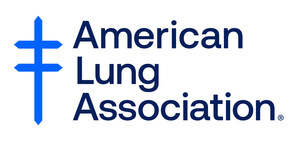American Lung Association Applauds EPA Decision to Protect Public from Soot
Mother Who Lost Daughter from Asthma Attack Joins Lung Association Chief Medical Officer in commending Obama Administration's Stronger Particulate Matter Air Quality Standards
WASHINGTON, Dec. 14, 2012 /PRNewswire-USNewswire/ -- The American Lung Association applauds the Obama Administration's decision to set a much stronger national air quality standard on particulate matter (soot), one of the nation's most lethal air pollutants. The U.S. Environmental Protection Agency (EPA) set limits on airborne microscopic particles, following the findings by independent scientists that this pollutant causes premature death at levels well below what is currently considered safe.
"We know clearly that particle pollution is harmful at levels well below those previously deemed to be safe. Particle pollution causes premature deaths and illness, threatening the millions of Americans who breathe high levels of it," explained Norman H. Edelman, M.D., Chief Medical Officer for the American Lung Association. "By setting a more protective standard, the EPA is stating that we as a nation must protect the health of the public by cleaning up even more of this lethal pollutant. Reducing particle pollution will prevent heart attacks and asthma attacks, and will keep children out of the emergency room and hospitals. It will save lives."
"I'm a mother who knows all too well how devastating an asthma attack can be," explained Lydia Rojas, a Lung Association volunteer from Oxnard, California who told EPA at a July public hearing about the death of her daughter, Steph, from an asthma attack at school. "The EPA's action today will mean that other moms whose children struggle to breathe because of soot pollution can know that much cleaner air is coming. Steph would have been 22 years old on Sunday, December 16. This is a wonderful birthday gift in her memory."
Particulate matter, also known as particle pollution or soot, is a mixture of liquid droplets and solid particles made of toxic chemicals, metals and smoke. These particles are small enough to penetrate deep into the lungs and even into the bloodstream, leading to tens of thousands of premature deaths, heart attacks and asthma attacks every year. Particles come from wide-ranging sources, including coal-fired power plants, industrial boilers, diesel vehicles and woodstoves.
The EPA tightened the limit, called the national ambient air quality standards, for the annual average level of fine particulate matter (PM 2.5) to 12 micrograms per cubic meter from the outdated standard set in 1997 of 15 micrograms per cubic meter. EPA made no changes to the 24-hour fine particle standard or the coarse particle standard (PM 10) despite evidence that both standards need strengthening.
"Initiatives that will reduce particle pollution from diesel trucks, power plants and other sources are already on the books and will help many areas of the country meet this new health standard, added Dr. Edelman. "But, the promise of the Clean Air Act, clean, healthy air for all, still needs to be kept. This new standard moves us closer to that goal."
The American Lung Association and the National Parks Conservation Association represented by Earthjustice took legal steps against the EPA to get the review completed as required by the Clean Air Act. The decision announced today completed that review. This decision also addressed the Lung Association's legal victory against EPA's flawed decision in 2008 to retain the annual standard set in 1997, a lawsuit joined by the Environmental Defense Fund and also represented by Earthjustice.
The American Lung Association's free State of the Air® smartphone app tracks current air quality conditions and next-day air quality forecasts for particle pollution and other widespread air pollutants. This tool, which is available for Apple and Android, can be a valuable resource for people living with lung disease like asthma and chronic obstructive pulmonary disease (COPD), people with heart disease or diabetes, as well as older adults and children.
About the American Lung Association
Now in its second century, the American Lung Association is the leading organization working to save lives by improving lung health and preventing lung disease. With your generous support, the American Lung Association is "Fighting for Air" through research, education and advocacy. For more information about the American Lung Association, a holder of the Better Business Bureau Wise Giving Guide Seal, or to support the work it does, call 1 800 LUNG USA (1 800 586 4872) or visit www.lung.org.
SOURCE American Lung Association
WANT YOUR COMPANY'S NEWS FEATURED ON PRNEWSWIRE.COM?
Newsrooms &
Influencers
Digital Media
Outlets
Journalists
Opted In





Share this article